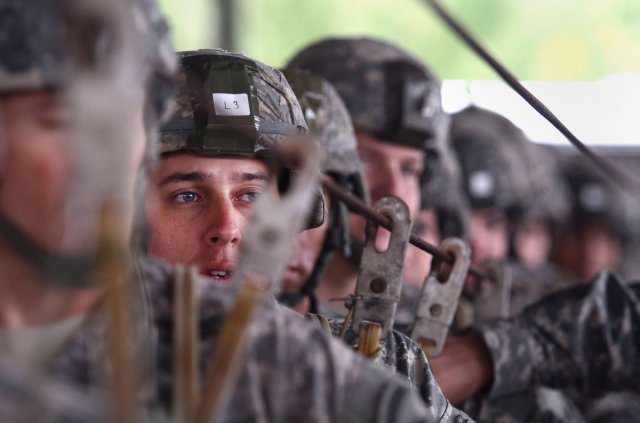On Capitol Hill Feb. 13, the Army’s chief of staff told lawmakers in very clear terms what budget reductions under sequestration would do to Soldiers and Army readiness.
“It has grave consequences and immediate readiness impact on our forces,” Chief of Staff of the Army Gen. Raymond T. Odierno told members of the House Armed Services Committee.
For those not serving now in Afghanistan or those not forward-based in Korea, budget cuts will mean that they are not getting the training they need to go into the fight if called upon to do so, the general said.
“We will curtail training for 80 percent of our ground forces,” he said. “This will impact our units’ basic war-fighting skills, and induce shortfalls across critical specialties, including aviation, intelligence and engineering — and even our ability to recruit new Soldiers into the Army.”
Soldiers in Afghanistan now, he said, were trained for that deployment. Those who are getting ready to go — they too are trained and ready. But there will be no money to adequately prepare the next set of Soldiers who are meant to go.
“We will see a slow degrade in our readiness,” he said. “We will respond, [but] they will not be as ready as we like them to be and the cost will be in lives.”
Not only will Soldiers miss out on critical, life-saving training, but the skill set in the Army to train Soldiers will also be lost. Without the funding to provide the opportunities for experienced Soldiers to pass their skills on to inexperienced Soldiers, skill sets and knowledge of standards will be lost, until that knowledge is all but completely gone from the Army.
That erosion of corporate knowledge will get worse as time goes on, Odierno said.
“It’ll be worse a year from now than it is today,” he said. “It’ll be worse two years from now than it is a year from now. It will slowly degrade over time. It becomes risky. And then you find yourself in a hollow force — one that is not capable of doing the missions we are going to ask them to do.”
Right now, Odierno said, there is already a training deficiency in the force. The Army would like to train Soldiers with the ability to work and coordinate with commands up to the battalion level. But that is not the case today, he told lawmakers.
“Their proficiency, although still good, is not where we would like it to be,” he said. “Because of these training reductions, right now we believe we are down to about squad-level capability for fiscal year 2013, for example. So that means you’re only going to train up to the squad. When you have to deploy somewhere, your ability to coordinate and execute has not been trained. That puts lives at significant risk.”
If funding for aviation training is reduced, he said, it will hinder the ability of pilots to perform in environments like Afghanistan, where flying conditions are difficult and dangerous.
“They will go in there with a hell of a lot less capability,” he said. “That means mistakes will be made. That means we will have accidents, or that means they will be more likely to be shot down by enemy fire.”
That increase in risk, due to a cut in training, doesn’t just spell out a danger to pilots, but also to their passengers, Odierno said. It also means limiting the kinds of missions that aviation can perform, and the kinds of missions that can be performed that depend on aviation support.
“So across a broader range, you lose your broader capability to conduct the type of operations that are necessary for us to be successful,” he said.
Both infantry training and aviation training are critical to the Army and the missions it conducts. But also important are the critical combat support functions like logistics. With the budget reductions that will come with sequestration, he said, new budget prioritization might mean logistics Soldiers also do not get the training they need, to run convoys for instance.
“All of those things now come at risk and ultimately those all result in the loss of life and the loss of capability we have,” Odierno said.
The general told lawmakers that force reductions and loss of training will result in a hollow force, something he said he has seen in the past.
“All of us have experienced the Army post-Vietnam,” he said. “It is one that was under-resourced, one that was under-trained, one that lacked appropriate equipment, was not ready, and lacked discipline. We cannot allow careless budget cuts to bring us there again. I began my career in a hollow Army, I am determined not to end my career in a hollow Army. We owe that to the young men and women who are willing to raise their right hand and defend this country.”










